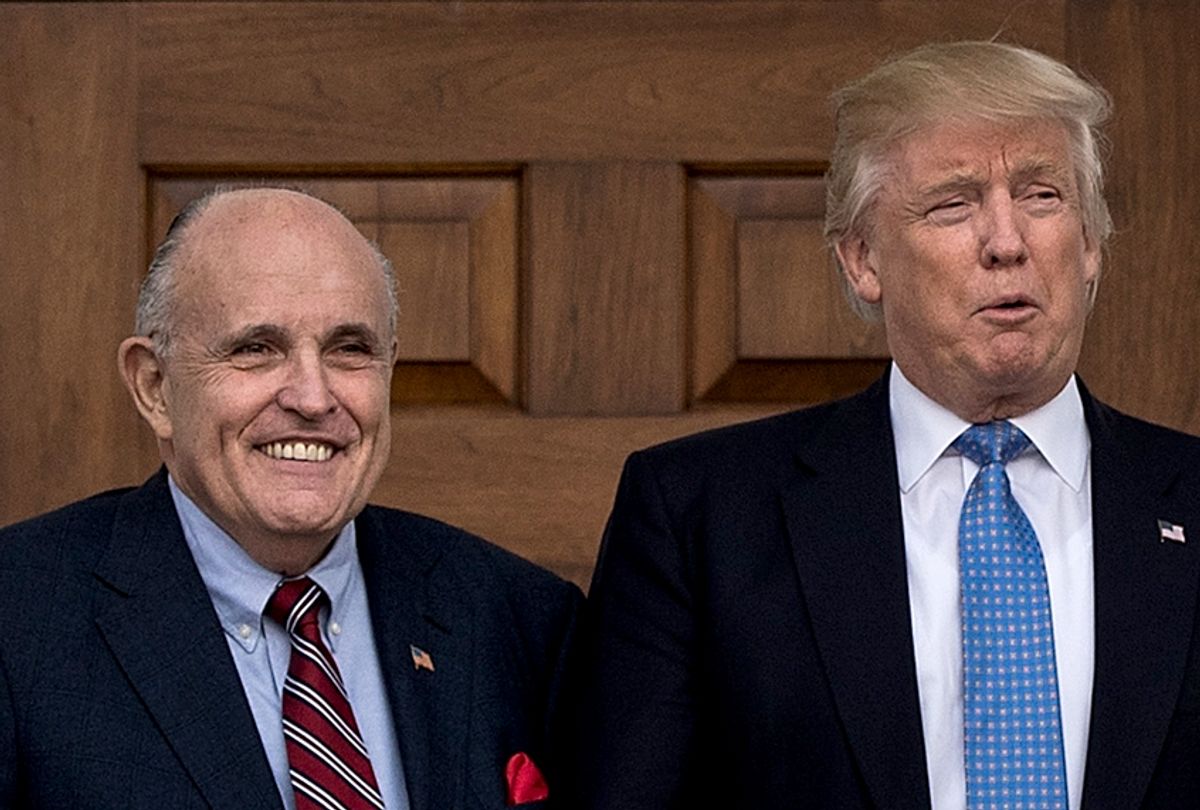Ever since he became President Donald Trump’s chief attorney, Rudy Giuliani has had difficulty mastering the facts of the case. He appears to have gotten tangled up again during his appearance on ABC’s “This Week” on Sunday morning when he suggested the president has a right to pardon himself.
Using the spurious argument that anything not specifically forbidden in the Constitution is allowed, the former New York City mayor and presidential candidate dismissed the notion that Trump would absolve himself of his crimes, if it came to that.
Here’s the the exchange with show host George Stephanopoulos, who asked Giuliani about a 20-page letter Trump’s legal team sent to special counsel Robert Mueller, who is investigating alleged collusion between the Trump campaign and Russian agents in the last presidential election:
Stephanopoulos: The letter also cites the president’s pardon power. Do you and the president’s attorneys believe the president has the power to pardon himself?
Giuliani: He — he’s not but he probably does. He has no intention of pardoning himself but he probably — not to say he can’t. I mean, that — that’s another really interesting constitutional argument, can the president pardon himself.
Stephanopoulos: Do you think it's an open question?
Giuliani: It would be an open question. I think it would probably get answered by gosh, that’s what the constitution says and if you want to change it, change it. But yes.
The letter was sent to Mueller in January and was published Saturday in the New York Times. In it, Trump’s lawyers argue that the president is incapable of obstructing justice in the Mueller probe because that would mean he’s “obstructing himself.”
“It remains our position that the President's actions here, by virtue of his position as the chief law enforcement officer, could neither constitutionally nor legally constitute obstruction because that would amount to him obstructing himself, and that he could if he wished, terminate the inquiry, or even exercise his power to pardon if he so desired," reads the letter dated Jan. 29.
The question of whether a U.S. president can pardon himself has long been settled. In 1974, shortly before President Richard Nixon resigned in disgrace over the Watergate scandal, the U.S. Justice Department argued that a fundamental rule of justice is that “no one may be a judge in his own case.” Furthermore, the U.S. Constitution’s pardon provision is clear that the president can act as a judge about someone else’s conduct, and disallows a president from pardoning himself to dodge impeachment or removal.
Giuliani’s comments as the president’s lawyer have often seems counter-producing to his client’s best interests. Giuliani went off message last month when he said Trump was aware that his long-standing personal attorney, paid porn star Stormy Daniels (Stephanie Clifford) $130,000 in the run-up to the 2016 presidential election to stay quiet about allegations Trump slept with Clifford in 2011. Until then, the argument from Trump’s legal tea, was that Cohen acted alone and without Trump’s knowledge.

Shares